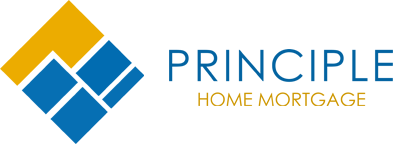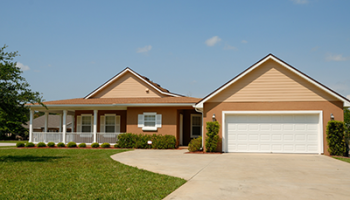Mortgage FAQ
Mortgage FAQ
Buying a home is one the biggest investments that you’ll ever make in your lifetime. Unfortunately, most people are unable to pay for their entire home upfront. This is where a mortgage loan comes into play. D. Shane Whitteker is the owner and chief broker at Williamsport mortgage brokerage Principle Home Mortgage. We asked him 15 frequently asked mortgage questions to help guide you through the process.
What are a few basic, easy to do steps to improve my credit score so I can get a better mortgage?
Make sure that you’re paying your credit card payment on time each month. Using your credit card and showing that you can keep up with payments will positively affect your score. You can also fulfill any outstanding debt. However, Whitteker says you should also beware of your credit balance and limit.
“The obvious steps are paying bills on time,” Whitteker says.
However, there is another factor to consider when aiming to improve your credit score.
“One big one that people don’t think about is the amount of debt carried on revolving accounts (credit cards) in comparison to your credit limit,” Whitteker says. “Ideally your revolving balances don’t exceed 25% of your credit limit. The closer your revolving balances are to your credit limits the more of a negative impact you will see on your credit score.”
Finally, Whitteker recommends being selective about who pulls your credit and how many times it gets pulled.
Is there a difference between being pre-quaified for a mortgage and being pre-approved?
Getting pre-qualified for a mortgage shows that you have a high likelihood of being able to pay for a loan. You also have a high ability to borrow money. Your Pre-approval process focuses on determining how much money you qualify for, the interest rate, etc.
Is there an easy way to know how much house I can afford?
There are a number of factors that are looked at when a lender is pre-approving you for a mortgage. The amount of income you bring in each month is calculated. You then subtract your various bills. The amount leftover is what you have to work with each month for your mortgage payment. You don’t want to spend that full amount. There are various expenses that come up, and you want to save some money in your bank account. Never spend beyond your means.
Whitteker says one easy way to calculate your current financial situation is to determine your debt to income ratio.
“This comes down to debt to income ratio and down payment availability. For debt to income ratio you would take your existing bills and proposed housing expenses and divide these by your income. If your DTI comes out higher than 45% you will have less options available,” Whitteker explains. “I recommend contacting your local mortgage broker to help you with this.”
Another aspect of how much home you can afford is how much down payment you can afford.
"If you have around 6% of the purchase price available (in the form of a down payment), you are typically in pretty good shape,” Whitteker says. “Again, make sure you contact your local mortgage broker to help with this. This just gives you an idea but there is a lot more to qualifying than these two items.”
What is a good rule of thumb to follow when it comes to saving for a mortgage down payment?
If you’re going to be purchasing a home in the near future, save as much money as you can. It might be wise to scale back on vacations and unnecessary spending. The more money you can put down, the lower your monthly payment is going to be. Remember also to save for closing costs.
There are so many mortgage options out there. How can I know what mortgage is right for me?
Working with a trustworthy local mortgage broker will help you throughout this process. This is a complex financial situation that requires some guidance. With different loan products available, you can let your lender make a recommendation for you. Make sure to fully understand what the different details and terms are before you sign any paperwork. This is the time to ask questions.
According to Whitteker, the answer to this question hinges on several factors.
“The right mortgage for you largely depends on credit score, debt to income ratio and down payment availability,” Whitteker says. “If you have 20% down you most likely will be looking at conventional financing. If you are a veteran or currently serve in the military you most likely will be looking at a VA mortgage. If your debt to income is a bit on the high side and your down payment is limited you will probably need to look at FHA. If your credit score is below 620 you will need to consider FHA or VA.”
When is an adjustable rate mortgage worth the risk?
This depends on specific circumstances of the home buyer. It is best to consult your local mortgage broker to determine if your specific situation is one that could benefit from an adjustable rate mortgage (ARM).
Please explain the difference between a 15 year mortgage and a 30 year mortgage. When does each make sense?
The length of mortgage that you take out can often affect the interest rate that comes along with it. If you think that you can pay your mortgage off in 15 years, you may be able to secure a lower interest rate. Most people need 30 years to pay off their mortgage in full, but this can end up costing more money over the course of the loan.
“A 15 year and a 30 year mortgage have different amortization schedules. A 15 year will usually have a lower interest rate than the 30 year as well,” Whitteker says. “Since a 15 year will be paid off more quickly the main difference is the monthly payment amount. A 15 year payment will cost more per month but will save you a lot of money in the long run.”
Is it possible to “lock in” my mortgage interest rate? What does this mean?
Some home purchases can take a little longer than others to close. If you’re afraid your rate may increase, you can lock in the rate for the time being. Even if rates go up while you’re still in the process of closing, you will be able to keep that right what it originally was set at.
Once I get a mortgage, what does my mortgage payment include?
"At a minimum most mortgages include principle and interest. If you escrowed your taxes and your insurance your real estate taxes and your home owners insurance will also be included in your payment,” Whitteker says. “Since 2009 the regulatory requirements don’t allow for mortgage types that don’t include your full principle and interest payment. There may be a small number of people out there with mortgages that don’t fall under this scenario but not many.”
Is refinancing my home loan a good idea? How can I know if it’s a smart choice?
There may come a time when the economy is in much better shape than it was when you originally signed up for your loan. Refinancing your loan will allow you to change your interest rate to something that is more beneficial. You’ll have to pay closing costs and some other fees like you did when you first originated the loan. One advantage of a refinance is that you can typically roll your closing costs into your mortgage so you don’t have to pay them out of pocket.
Am I able to speed up the closing process? What does a typical closing entail?
Some of the closing process relies on you. You’ll have to submit certain paperwork and required information in order to proceed towards your target date. There are also closing details that are dependent on the lender, the attorneys involved and the sellers. There may not be a whole lot you can do if things are moving slowly on their end. During closing, a title will pass hands from the seller to the purchaser. A closing attorney or agent will handle this process for you.
According to Whitteker, the better you are at providing documents and following instructions, the faster the process will be.
“Having your documents available and responding quickly to document requests is very important,” Whitteker says. “Listening to your mortgage broker and not changing your finances like spending your down payment money or taking on new debt are very important. You would be surprised how difficult this is for some people.”
Is it a better idea to rent or to buy a home? Is there a way to calculate this?
Renting a home may be more affordable at this point in your life, but you have to realize that you’re paying money towards something that you will never own. If you’re going to be doing this short term, this might be a beneficial option for right now. Buying is an investment that will benefit you for a lifetime. If you’re trying to decide what the better choice would be, calculate how much you can afford for a home and how much your payment would be. Add up what you would pay in rent. See if the amount is drastically different. You might be able to purchase a home sooner than you thought.
When I buy my home, who pays the Realtor fees?
Can those be rolled into my mortgage?
“In Pennsylvania the seller typically pays the realtor fees. Some states may be different but this is that norm in most of the country,” Whitteker says. “There are circumstances where this might not be the case. If you are working with a realtor and decide to have them represent you on a home that is not listed with any real estate agent you may end up paying their commission. This can usually be worked into the purchase price but not always.”
Should I eliminate all my debt before buying a home?
It’s ok to still have some debt when you’re buying a home. You just want to make sure that you can handle all of that debt at once. If you’re in over your head with credit card debt, a car loan and medical bills, now might not be the best time to sign up for a mortgage.
Do I need to save for closing costs when buying a home?
Closing costs are something that you’ll have to account for when buying a home. If you think you’re going to have trouble paying for them, Whitteker says you may be able to work these costs into the sales contract to be paid for by the seller.
“At a minimum you need to save your down payment. Most closing costs can usually be paid for by the seller,” Whitteker says. “This depends on the type of mortgage you apply for. For example, FHA allows the seller to cover a higher percentage of the price of the home as seller assistance towards closing costs than a conventional mortgage allows for. So it’s important to have this discussion with your mortgage broker so you can plan properly.”
To answer any questions you may have about getting a mortgage, contact the Williamsport mortgage experts at Principle Home Mortgage today.
VA Home Loans In Williamsport: A Primer
If you're looking for a Williamsport VA home loan, this article will give you a solid foundation. VA home loans - in Williamsport or anywhere else in Pennsylvania - are one of the best ways to obtain a home mortgage.
Step-By-Step Guide to Being a First Time Home Buyer
As a first time home buyer, you'll have a lot of questions. Check out our Williamsport First Time Home Buyer Guide for answers.
First Time Williamsport Home Buyer Mortgage Tips: The Inside Scoop
If you're considering buying a home in Williamsport - or anywhere else in Pennsylvania, you're guaranteed to learn something new in this informative guide.




